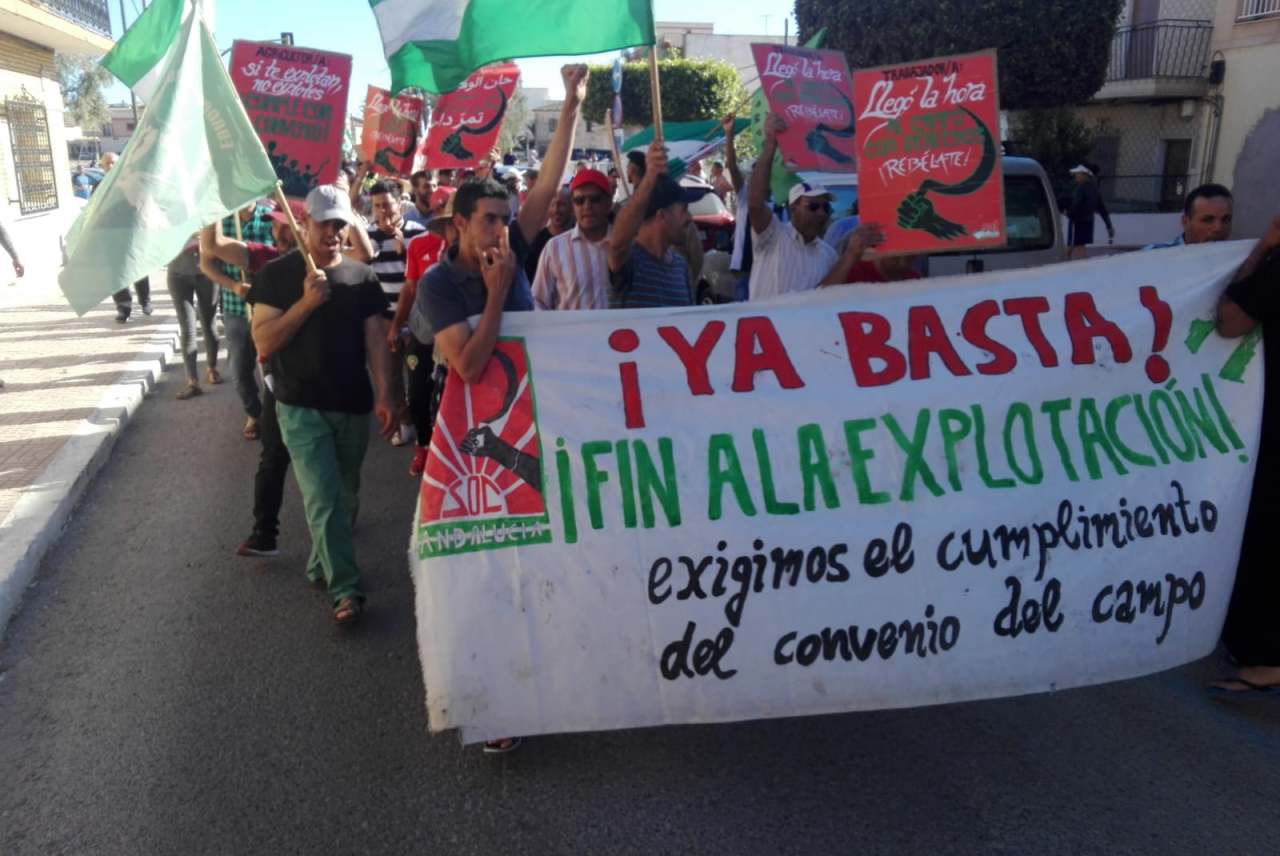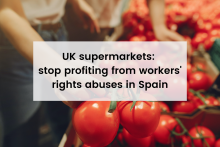Allegations against Biosabor
Interviews with former workers
Ethical Consumer spoke with several people who claim to have worked at Biosabor for several years.
Omar’s story – fired for refusing to lie on his time sheet during Ramadan
Omar claims to have worked regularly at a Biosabor subsidiary from 2009-2020, yet was never given a permanent contract. In Almeria if a temporary worker works for the same company for three consecutive fruit or vegetable harvests, the company is legally obliged to provide them with a permanent contract (meaning they must be offered work during harvest periods.)
Omar claims that the company often falsifies workers’ time sheets, stating for example that they worked around 11-15 days when they actually worked 28-30 days per month. He alleges that this helped to conceal the fact workers were paid under minimum wage, and enabled Biosabor to avoid making adequate social security payments.
Omar claims that he was fired for refusing to sign a falsified time sheet, which had been requested by the Spanish Labour Inspectorate. Omar claims that Javier Belmonte, head of the Biosabor subsidiary of the same name and brother of Biosabor CEO Francisco Belmonte, demanded that he sign a falsified time sheet.
Ethical Consumer listened to a concealed audio recording of a conversation allegedly between Javier Belmonte (the employer) and Omar. The employer repeatedly asks the other to sign a time sheet. Omar says that the time sheet says he worked from 8.30am-11pm, but he actually worked until at least 1am. Omar says he cannot lie before God by signing the falsified time sheet, especially during Ramadan. The employer says that it’s not a matter of lying before God – it’s just a matter of lying on paper. After Omar still refuses to sign, the employer says their relationship is “broken” and walks away.
Omar claims that shortly after he refused to sign the time sheet, he was fired. Omar claims that Javier Belmonte then fired the entire staff of his farm, although the harvest was far from over.
“Shortly after I refused to sign the time sheet, they sent 30 people to the street – they fired us all.”
He believes workers were fired to prevent them speaking out before a Labour Inspectorate visit.
Luisa’s story – paid 4 euros per hour as an undocumented migrant
Worker Luisa claims that she was contracted to work 8 hours per day, 6 days per week at Biosabor, but that in reality she worked an average of 8 to 9 hours per day 6 days per week. Some days she worked 10 hours. The worker claims she was not paid for extra hours worked, and did not receive paid breaks.
“When I began working at the company in 2016/17 I was undocumented and they paid me 4 euros per hour. I worked so many hours. It was very hard” She states that in 2019 she was paid around 5.5 euros per hour, and near the end of 2019 this increased to 6 euros per hour– still significantly below minimum wage (7.55 euros per hour in 2022).
Luisa says that she had a fixed contract with Biosabor, but that the company changed this to a temporary contract once they found out that she had a serious illness. Luisa says that this meant she wasn’t entitled to paid sick leave.
Luisa stated,
“Lots of people want to speak out, but they are afraid. Lots of workers don’t even know they’re entitled to rights. Our objective isn’t to shut any business down – we just want Biosabor to respect workers’ rights.”
Luisa says she personally knows six workers who have spoken out against the company. She claims that Biosabor has a lawyer who is consulted when workers denounce the company.
Pablo’s story – denied job security
Pablo says he worked at Biosabor for eight hours per day, six days per week, from 2017 until 2020. “They never gave me a fixed contract, even after three years.”
Pablo looked troubled as he explained that he wasn’t called back to work for Biosabor this year. “I don’t know why they haven’t called me back to work this year. I’ve worked there for three years.”
He states that as recently as July 2020 the company did not pay a higher rate for overtime hours.
Pablo claims that workers weren’t given masks when working with chemicals, nor adequate PPE or work uniforms, even though he says these were featured in promotional videos of the company.
He says “Biosabor doesn’t respect workers.”






